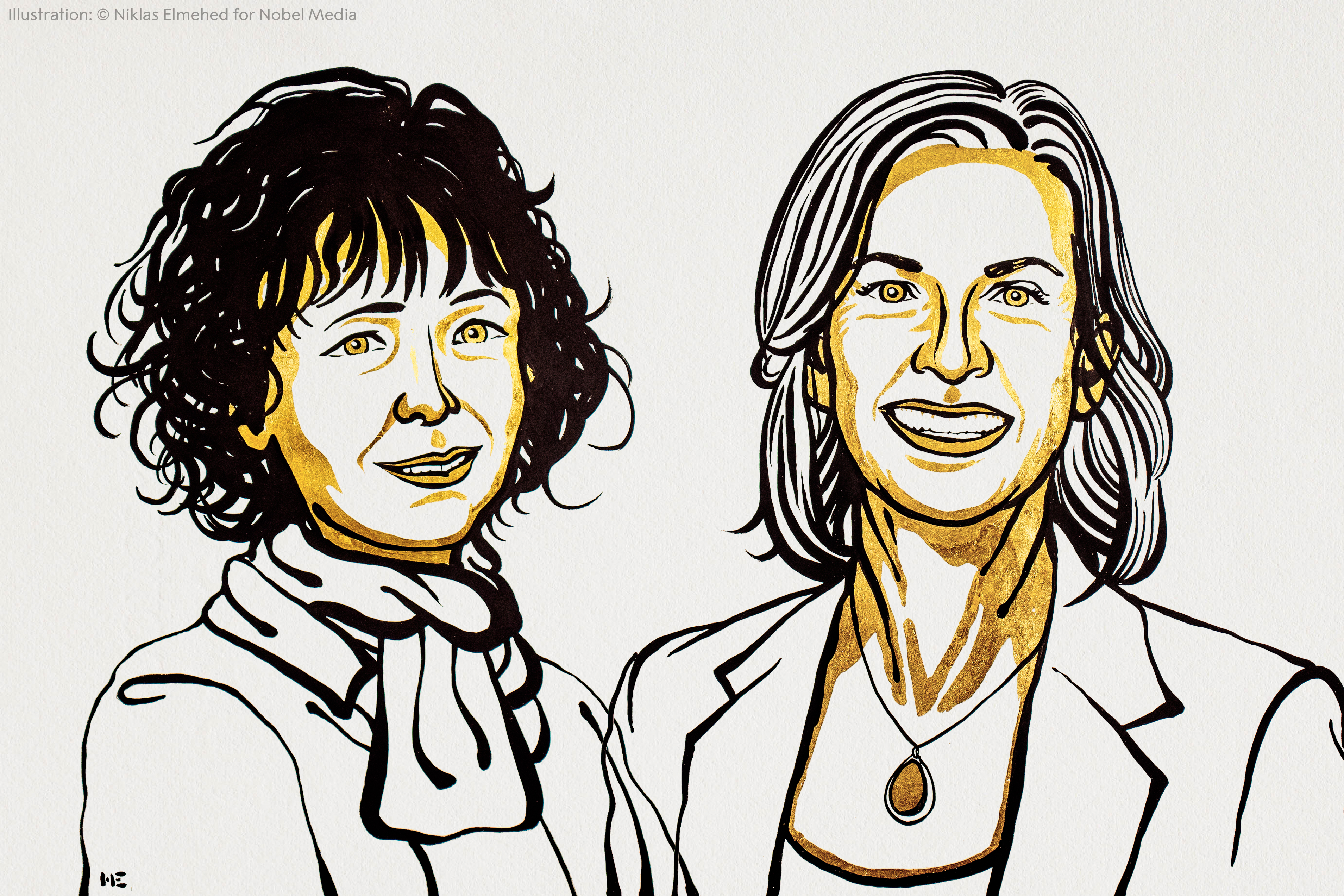The Nobel Prize in chemistry has gone to the two women who pioneered CRISPR gene editing

The Nobel Prize in Chemistry 2020 was awarded today to Emmanuelle Charpentier and Jennifer A. Doudna “for the development of a method for genome editing” called CRISPR.
Genetic scissors: The Nobel Committee cited Doudna and Charpentier for an “epoch-making” experiment in 2012 in which they determined how to use CRISPR to cut DNA at sites of their choosing. Since then, the “genetic scissors” technology has revolutionized lab research and has already been tested on patients as a way to cure blindness and sickle-cell disease. It has also been used to create gene-altered corn, pigs, and dogs—and, more controversially, humans. The technique is so powerful because it’s simple to use, involving just one specialized DNA-cutting protein and a “guide” molecule that can direct it anywhere in a genome.
The split: The prize is the first Nobel to be shared only by two women. But after their groundbreaking collaboration, the team quickly split up including over differences about commercializing the technology. Charpentier, based in Europe, and Doudna, of the University of California, Berkeley, each started separate biotech companies.
Controversial pick: Nobels can go to up to three people, so the committee’s choice to leave the third slot unfilled is likely to generate debate. Those potentially left out of the honor include Virginijus Šikšnys, a Lithuanian biochemist at the University of Vilnius who made similar discoveries. Also snubbed is Feng Zhang of MIT, who was among the first to show CRISPR editing in human cells and who has so far prevailed in a costly dispute with Charpentier and Doudna over CRISPR patent rights.
Warning the public: CRISPR gene editing has been called the “biggest biotech discovery of the century,” and since its development Doudna has taken on the most public role, including efforts to warn society about controversial uses that seem all but unstoppable. In 2018, a Chinese scientist, He Jiankui, used it on IVF embryos to create the first genome-edited human beings. His work was condemned, and he’s now serving a prison sentence.
Deep Dive
Biotechnology and health
How scientists traced a mysterious covid case back to six toilets
When wastewater surveillance turns into a hunt for a single infected individual, the ethics get tricky.
An AI-driven “factory of drugs” claims to have hit a big milestone
Insilico is part of a wave of companies betting on AI as the "next amazing revolution" in biology
The quest to legitimize longevity medicine
Longevity clinics offer a mix of services that largely cater to the wealthy. Now there’s a push to establish their work as a credible medical field.
There is a new most expensive drug in the world. Price tag: $4.25 million
But will the latest gene therapy suffer the curse of the costliest drug?
Stay connected
Get the latest updates from
MIT Technology Review
Discover special offers, top stories, upcoming events, and more.